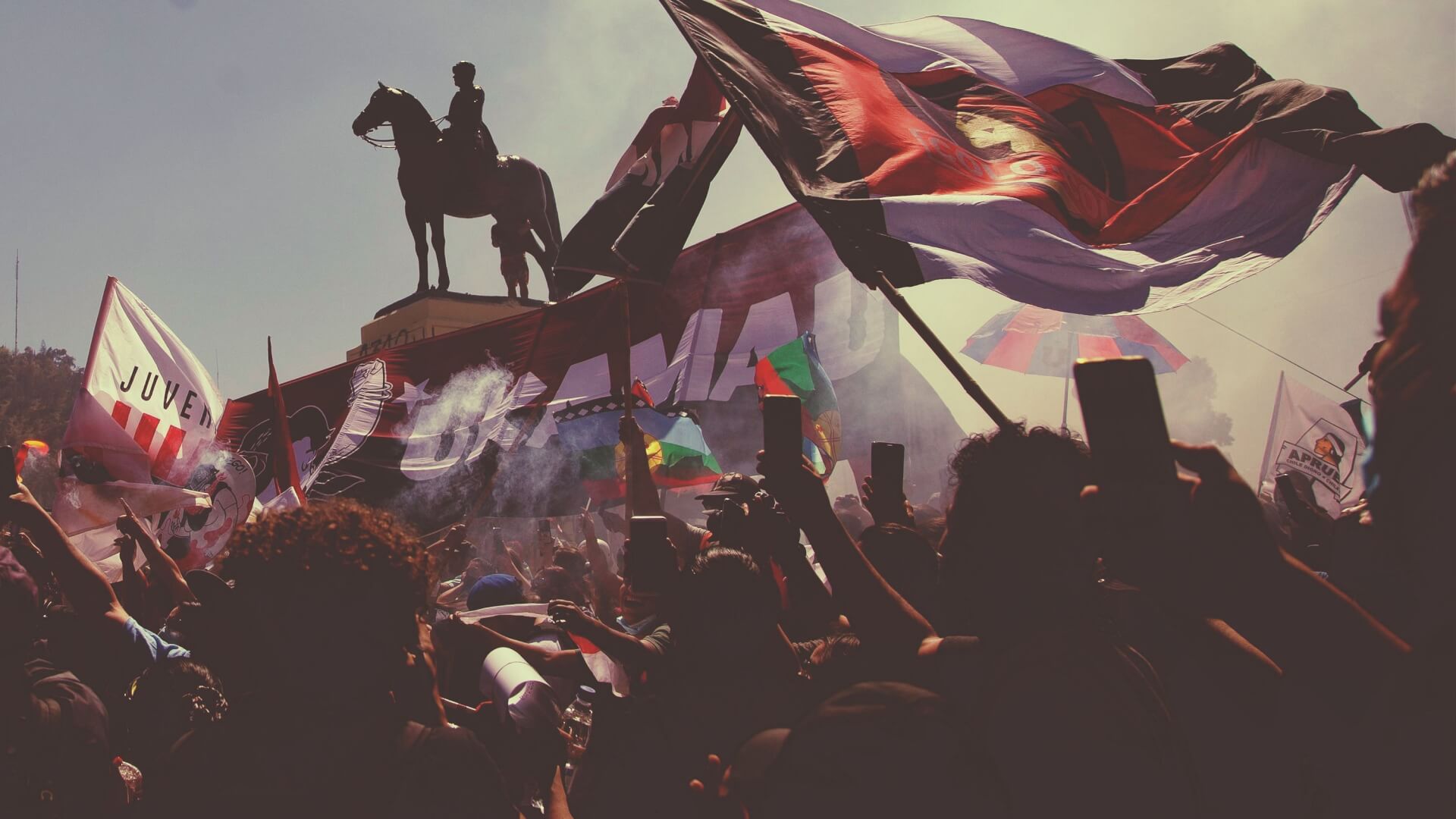Both Chile and Colombia are seeing a new wave of anti-establishment protests, with many of these demonstrations descending into chaos and violence.
In Chile, citizens have taken to the streets of capital city Santiago for four consecutive weeks to demonstrate against government mismanagement, corruption, inequality, and police brutality. In the past week, these protests have been characterized by looting and rioting.
This follows similar protests at the same time last year, when tens of thousands of protestors demanded systemic change and the resignation of President Sebastian Piñera. They were met with a brutal response by the police, which resulted in 30 deaths and thousands of injuries.
While this year’s protests have not attracted as many people, due to the coronavirus pandemic, they have nonetheless aroused a similar level of public discontent. In fact, these protests have been ongoing for some time. As far back as April, when the country was first beginning to feel the impact of the coronavirus pandemic, protestors were violently dispersed by security forces for continuing to demand systemic change.
Over the past three decades, income inequality has risen in Chile, with 10% of the population now controlling 40% of the country’s wealth, making it one of the most ‘unequal’ developed nations. Protestors have denounced the fact that the rich are afforded tax breaks while the poor are not provided with adequate social safety nets or adequate medical care.
These protests come ahead of a referendum on October 25 on whether to draft a new constitution and whether that constitution should be drafted by an assembly of congressional representatives and citizens, or only citizens.
Similarly, in Colombia, union members, teachers, students, and Indigenous communities have joined hands to protest against social and economic inequality under President Iván Duque, political suppression, and police brutality.
In fact, Colombia is the deadliest country in the world for human rights activists, particularly for environmental activists, many of whom are Indigenous. It is estimated that close to 400 human rights activists and community leaders have been assassinated since current President Duque came to power in August 2018.
Protests have been ongoing since last year and spiked in September, following a death of a 46-year-old lawyer in police custody. The ensuing protests left 13 civilians dead.
The most recent iteration of protests are demanding stimulus checks for those who lost their jobs during the ongoing coronavirus pandemic, increased public spending on health and education, and efforts to stop gender-based violence amid a huge uptick in femicide.
Duque, for his part, has thus far ignored pleas to meet with the thousands of Indigenous people who travelled to Bogotá to discuss their grievances with him.
Likewise, during the protests against police brutality in September, he was reluctant to criticize the security forces. While he condemned the killing of innocent civilians, he praised the country’s law enforcement officers for being “heroic” and “hard-working”.
Chile & Colombia Beset by Escalating Protests Against Corruption and Political Repression
Citizens in both countries have taken to the streets in droves, demanding systemic change.
October 23, 2020

SOURCE: AFP
